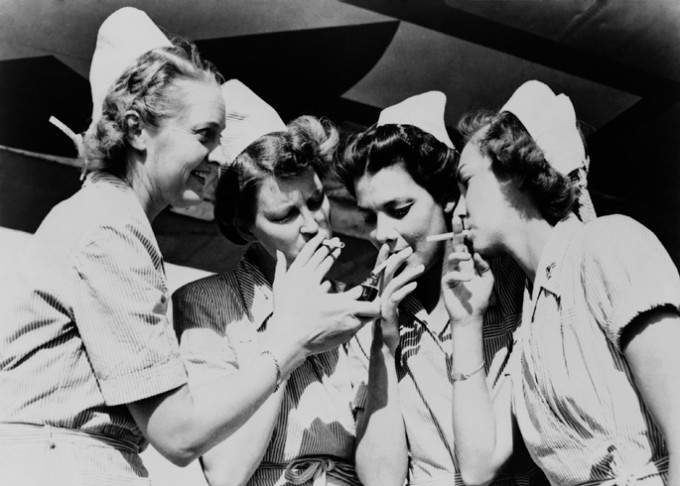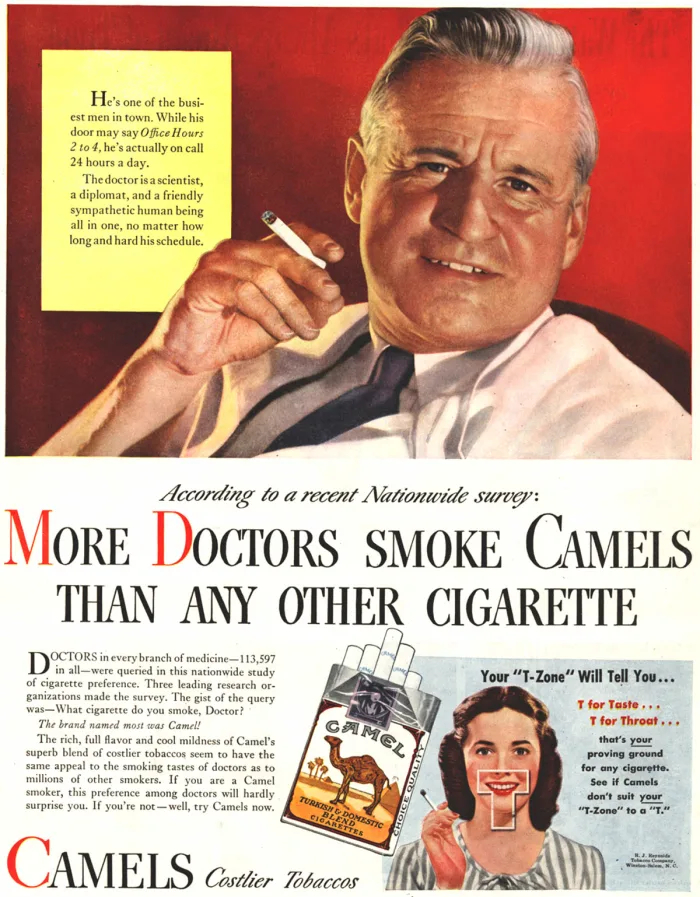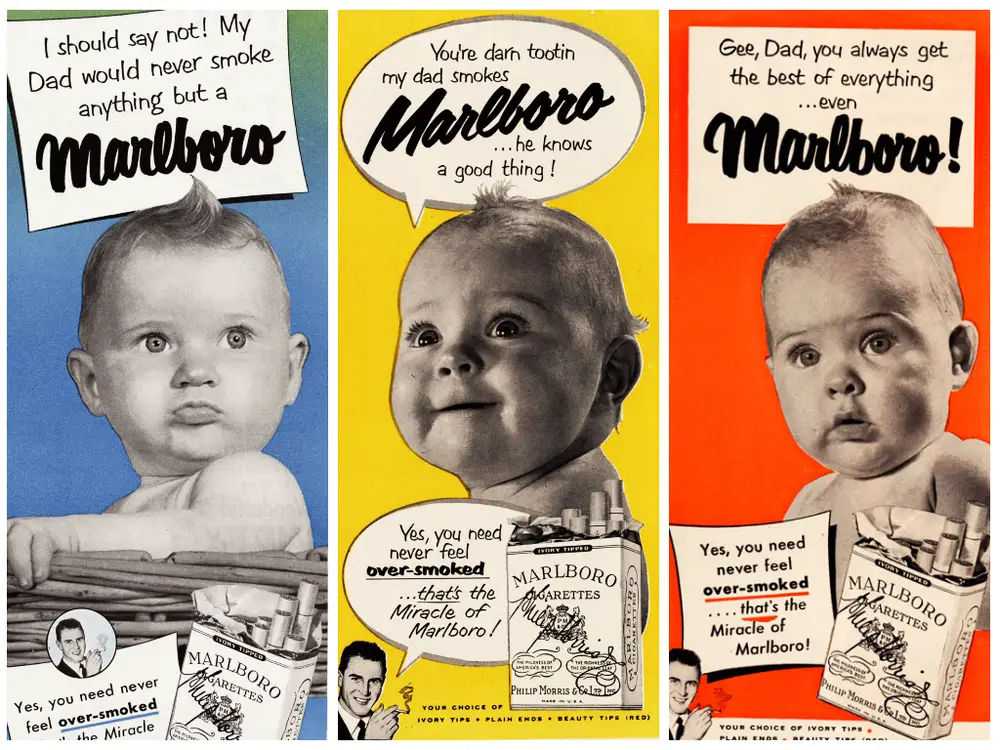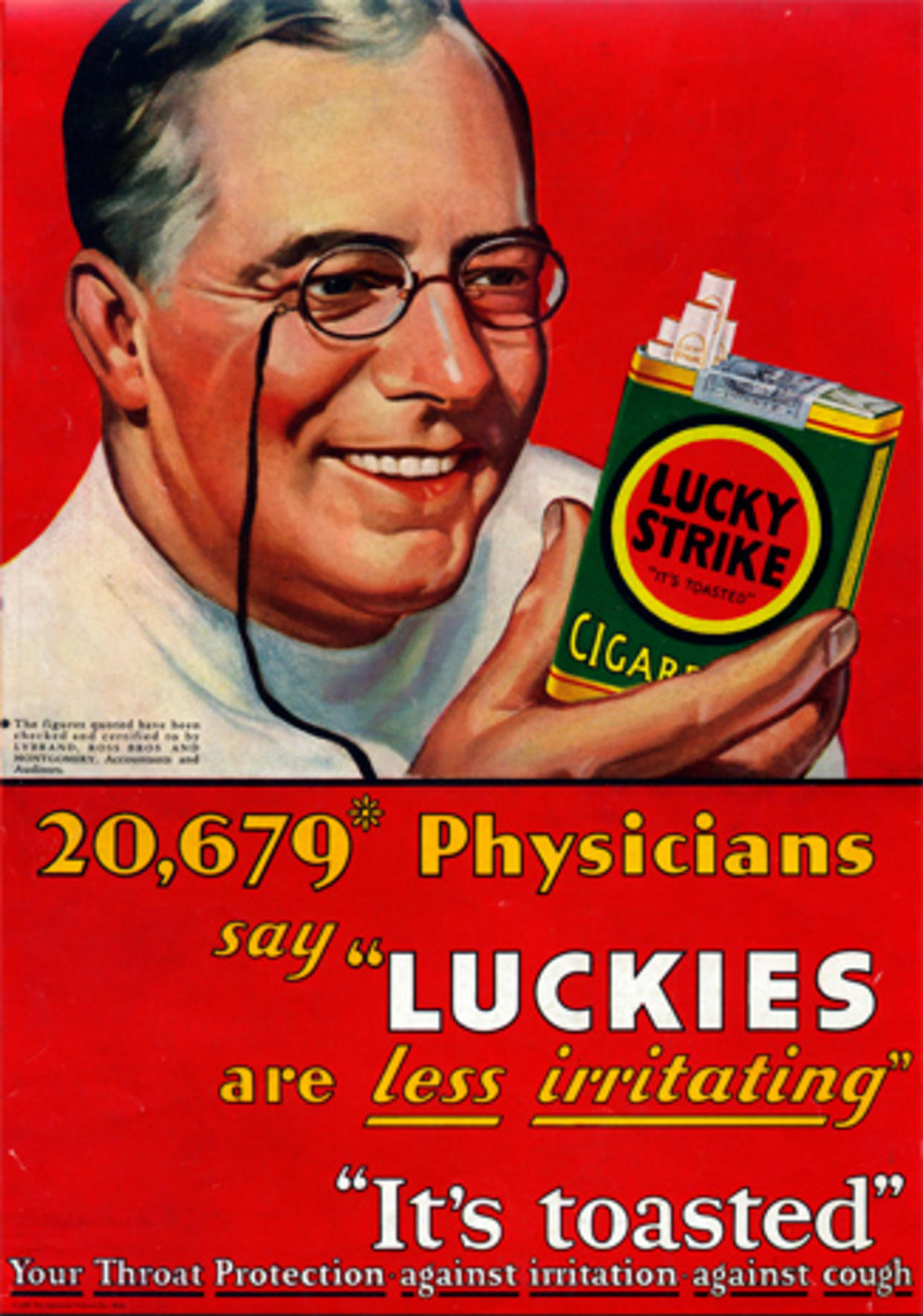Trivia 2 of 30
What brand of cigarettes did doctors smoke “more than any other”?
There was a time when doctors were the stars of cigarette ads and health claims ran wild.
From the late 1800s to the early 1990s, doctors and nurses puffed away in clinics and hospitals—a fact that tobacco companies cleverly used to help sell their products (WorkingNurse.com). It’s strange to think of our quintessential purveyors of health being used to market something that everyone now knows to be unhealthy, dangerous, and addictive.

Nurses and doctors used to smoke in hospitals. Photo: workingnurse.com
In 1946, the R.J. Reynolds Tobacco Company initiated an unforgettable ad campaign: “More doctors smoke Camels than any other cigarette.” A simple tactic of gifting doctors a carton of Camel cigarettes and asking their preferred brand led to the claim (history.com).

Camel cigarettes boasted that “More doctors smoked Camels than any other cigarette”. Photo: yale.edu
Other dubious health claims
Cigarette ads of the past featured strange visuals, from babies smoking cigarettes to models in white coats. Tobacco brands employed “throat doctors” (read: models clad in white) to spread the message that dust, germs, or a lack of menthol caused the cough, not the cigarettes (adweek.com).

Marlboro used babies to sell cigarettes. Photo: businessinsider.com
The first to use physicians in their ads, American Tobacco’s 1930 Lucky Strikes campaign declared: “20,679 Physicians say ‘LUCKIES are less irritating’” to the throat. Just a decade later, R.J. Reynolds Tobacco Company formed a Medical Relations Division, advertised in medical journals, and cited paid research in ads, like Philip Morris (history.com).

Lucky Strike cigarettes were supposedly good for your throat. Photo: npr.org